 W
WJames Adam was a Scottish architect and furniture designer, but was often overshadowed by his older brother and business partner, Robert Adam. They were sons of architect William Adam.
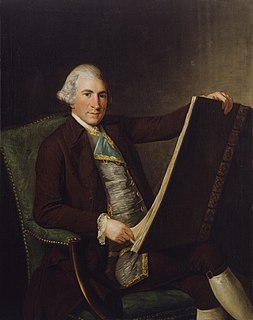 W
WRobert Adam was a Scottish neoclassical architect, interior designer and furniture designer. He was the son of William Adam (1689–1748), Scotland's foremost architect of the time, and trained under him. With his older brother John, Robert took on the family business, which included lucrative work for the Board of Ordnance, after William's death.
 W
WRobert Aiken was one of Robert Burns's closest friends and greatest admirers. He was born in 1739 in Ayr, Scotland. His father John Aiken, was a sea captain who owned his own ships and his mother was Sarah Dalrymple, distantly related to the Dalrymples of Stair. He became a writer or lawyer in Ayr and was referred to by Burns as "Orator Bob" in his poem "The Kirk's Alarm". Robert was famous for the power, beauty and quality of his oratory as his nickname infers.
 W
WArchibald Alison FRS FRSE was a Scottish episcopalian priest and essayist.
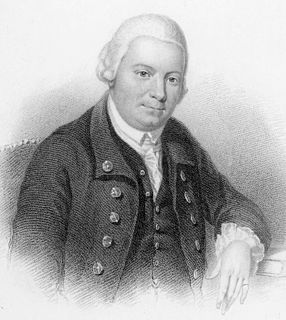 W
WJohn Anderson was a Scottish natural philosopher and liberal educator at the forefront of the application of science to technology in the industrial revolution, and of the education and advancement of working men and women. He was a joint founder of the Royal Society of Edinburgh, and was the posthumous founder of Anderson's College, which ultimately evolved into the University of Strathclyde.
 W
WJohn Ballantine (1743–1812), was a Scottish merchant and banker and one of the greatest friends, admirers and closest confidants of Robert Burns. Significantly Ballantine gave the poet advice on the selection of poems for his First Kilmarnock Edition as well as being asked for his opinion on the bard's poems.
 W
WThomas Brown was a Scottish philosopher and poet.
 W
WDavid Steuart Erskine, 11th Earl of Buchan, styled Lord Cardross between 1747 and 1767, was a Scottish antiquarian, founder of the Society of Antiquaries of Scotland in 1780, and patron of the arts and sciences.
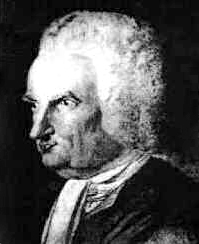 W
WJames Burnett, Lord Monboddo, was a Scottish judge, scholar of linguistic evolution, philosopher and deist. He is most famous today as a founder of modern comparative historical linguistics. In 1767 he became a judge in the Court of Session.
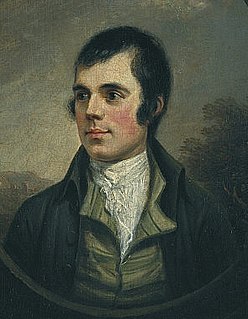 W
WRobert Burns, also known familiarly as Rabbie Burns, the National Bard, Bard of Ayrshire and the Ploughman Poet and various other names and epithets, was a Scottish poet and lyricist. He is widely regarded as the national poet of Scotland and is celebrated worldwide. He is the best known of the poets who have written in the Scots language, although much of his writing is in English and a light Scots dialect, accessible to an audience beyond Scotland. He also wrote in standard English, and in these writings his political or civil commentary is often at its bluntest.
 W
WAlexander Campbell was a Scots-Irish immigrant who became an ordained minister in the United States and joined his father Thomas Campbell as a leader of a reform effort that is historically known as the Restoration Movement, and by some as the "Stone-Campbell Movement." It resulted in the development of non-denominational Christian churches, which stressed reliance on scripture and few essentials. Campbell was influenced by similar efforts in Scotland, in particular, by James and Robert Haldane, who emphasized their interpretation of Christianity as found in the New Testament. In 1832, the group of reformers led by the Campbells merged with a similar movement that began under the leadership of Barton W. Stone in Kentucky. Their congregations identified as Disciples of Christ or Christian churches.
 W
WRev Prof George Campbell DD FRSE was a figure of the Scottish Enlightenment, known as a philosopher, minister, and professor of divinity. Campbell was primarily interested in rhetoric, since he believed that its study would enable his students to become better preachers. He became a philosopher of rhetoric because he took it that the philosophical changes of the Age of Enlightenment would have implications for rhetoric.
 W
WVery Reverend Alexander Carlyle DD FRSE was a Scottish church leader, and autobiographer.
 W
WMargaret Chalmers (1763–1843) or Mrs Lewis Hay was a lifelong friend of Robert Burns and had once turned down his offer of marriage. She married Lewis Hay and upon his death in 1800 she emigrated to Pau where she died in 1843. She corresponded with the poet between 1787 and 1792 although most of these letters were destroyed. One of his last completed works,“Fairest Maid on Devon Banks”, may have been written with her in mind, however her cousin Charlotte Hamilton is the stronger contender.
 W
WAlexander Cunningham was one of Robert Burns's closest friends from his time in Edinburgh. They stayed in contact, through at least 19 letters from the poet; and Cunningham was the ardent admirer who encouraged and joined others such as John Syme to raise funds for the poet's family after his death. Cunningham was one of the small group of associates whom Burns actively approached for constructive criticism of his work. He was the eldest son of James Cunningham of Hyndhope near Ettrickbridge in the Borders.
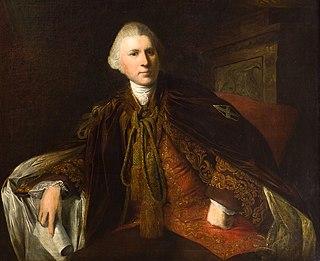 W
WGeorge Dempster of Dunnichen and Skibo FRSE FSA (Scot) (1732–1818) was a Scottish advocate, landowner, agricultural improver and politician who sat in the House of Commons between 1761 and 1790. Dempster founded the bank George Dempster & Co. in 1763, was a Director of the East India Company from 1769, and served as Provost of St Andrews (1780) and a Director of the Highland Society of Scotland (1789).
 W
WGeorge Drummond (1688–1766) was accountant-general of excise in Scotland and a local politician, elected Lord Provost of Edinburgh a number of times between 1725 and 1764.
 W
WRev John Erskine DD (1721–1803), the Scottish theologian, was born near Dunfermline at Carnock on 2 June 1721. His father was the great Scottish jurist John Erskine of Carnock and his grandfather was Colonel John Erskine of Cardross who had been in William of Orange's army when it invaded England in the Glorious Revolution of 1688.
 W
WJames Ferguson, Lord Pitfour was a Scottish advocate and second Laird of Pitfour, a large estate in Buchan. His flourishing law practice was sited opposite Parliament House in Edinburgh. He became Dean of the Faculty of Advocates in 1760 and was elevated to the bench as Lord Pitfour, in 1764.
 W
WPatrick Ferguson was a Scottish officer in the British Army, an early advocate of light infantry and the designer of the Ferguson rifle. He is best known for his service in the 1780 military campaign of Charles Cornwallis during the American Revolutionary War in the Carolinas, in which he played a great effort in recruiting American Loyalists to serve in his militia against the Patriots.
 W
WRobert Fergusson was a Scottish poet. After formal education at the University of St Andrews, Fergusson led a bohemian life in Edinburgh, the city of his birth, then at the height of intellectual and cultural ferment as part of the Scottish enlightenment. Many of his extant poems were printed from 1771 onwards in Walter Ruddiman's Weekly Magazine, and a collected works was first published early in 1773. Despite a short life, his career was highly influential, especially through its impact on Robert Burns. He wrote both Scottish English and the Scots language, and it is his vivid and masterly writing in the latter leid for which he is principally acclaimed.
 W
WAndrew Fletcher of Saltoun was a Scottish writer and politician, remembered as an advocate for the non-incorporation of Scotland, and an opponent of the 1707 Act of Union between Scotland and England. Fletcher became an exile after being accused of promoting insurrection. He was appointed the cavalry commander of the Monmouth Rebellion, but shortly after landing in England he killed another leading figure. He again went into exile, this time as a fugitive and with his estates forfeit. He returned with William of Orange, becoming Commissioner of the old Parliament of Scotland.
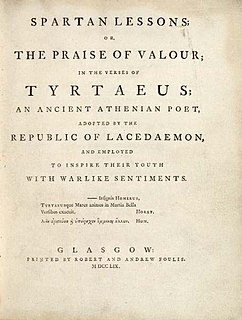 W
WRobert Foulis was a Scottish printer and publisher.
 W
WAlexander Gordon MA, MD was a Scottish obstetrician best known for clearly demonstrating the contagious nature of puerperal sepsis. By systematically recording details of all visits to women with the condition, he concluded that it was spread from patient to patient by the attending midwife or doctor, and he published these findings in his 1795 paper "Treatise on the Epidemic Puerperal Fever of Aberdeen". On the basis of these conclusions, he advised that the spread could be limited by fumigation of the clothing and burning of the bed linen used by women with the condition and by cleanliness of her medical and midwife attendants. He also recognised a connection between puerperal fever and erysipelas, a skin infection later shown to be caused by the bacterium Streptococcus pyogenes, the same organism that causes puerperal fever. His paper gave insights into the contagious nature of puerperal sepsis around half a century before the better-known publications of Ignaz Semmelweis and Oliver Wendell Holmes and some eighty years before the role of bacteria as infecting agents was clearly understood. Gordon's textbook The Practice of Physik gives valuable insights into medical practice in the later years of the Enlightenment. He advised that clinical decisions be based on personal observations and experience rather than ancient aphorisms.
 W
WGavin Hamilton was one of Robert Burns's closest friends and a patron. The first 'Kilmarnock Edition' of his poems were dedicated to Gavin Hamilton.
 W
WHenry Home, Lord Kames was a Scottish advocate, judge, philosopher, writer and agricultural improver. A central figure of the Scottish Enlightenment, a founding member of the Philosophical Society of Edinburgh, and active in the Select Society, he acted as patron to some of the most influential thinkers of the Scottish Enlightenment, including the philosopher David Hume, the economist Adam Smith, the writer James Boswell, the chemical philosopher William Cullen, and the naturalist John Walker.
 W
WRev John Home FRSE was a Scottish minister, soldier and author. His play Douglas was a standard Scottish school text until the Second World War, but his work is now largely neglected. In 1783 he was one of the joint founders of the Royal Society of Edinburgh.
 W
WJohn Hope, also known as Jan Hope, was a Dutch banker, the son of Thomas Hope and Margaretha Marcelis. A first cousin of Henry Hope, he was father of Thomas Hope, and a follower of the Scottish Enlightenment. He is best known today for his Groenendaal Park in Heemstede, Netherlands, where he summered from 1767 to his death in 1784.
 W
WFrancis Hutcheson was a philosopher born in Ulster to a family of Scottish Presbyterians who became known as one of the founding fathers of the Scottish Enlightenment. He is remembered for his book "A System of Moral Philosophy".
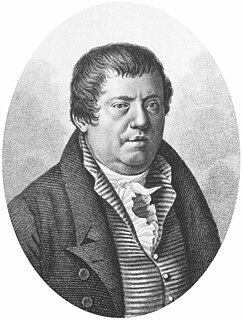 W
WSir John Leslie, FRSE KH was a Scottish mathematician and physicist best remembered for his research into heat.
 W
WJames Macpherson was a Scottish writer, poet, literary collector and politician, known as the "translator" of the Ossian cycle of epic poems. He was the first Scottish poet to gain an international reputation.
 W
WDavid Mallet (c.1705–1765) was a Scottish poet and dramatist.
 W
WDavid Martin was a Scottish painter and engraver. Born in Fife, he studied in Italy and England, before gaining a reputation as a portrait painter.
 W
WVery Rev James Meek DD FRSE (1742–1810) was Minister of Cambuslang from 1774 until his death. He was Moderator of the General Assembly of the Church of Scotland in 1795, but is most remembered as the model Enlightenment cleric who wrote the entry for Cambuslang in the First Statistical Account of Scotland.
 W
WHenry Dundas, 1st Viscount Melville, PC, FRSE was a Scottish advocate and Tory politician. He was the trusted lieutenant of British prime minister William Pitt, and the most powerful man in Scotland in the latter decades of the 18th century.
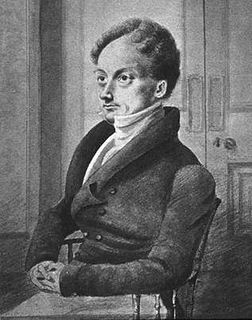 W
WJames Mill was a Scottish historian, economist, political theorist, and philosopher. He is counted among the founders of the Ricardian school of economics. He also wrote the monumental work The History of British India. He was the first writer to divide Indian history into three parts: Hindu, Muslim and British, a classification which has proved surpassingly influential in the field of Indian historical studies, but which is seen in recent decades as being deeply problematic.
 W
WJohn Millar of Glasgow was a Scottish philosopher, historian and Regius Professor of Civil Law at the University of Glasgow from 1761 to 1800.
 W
WHenry Moyes was a blind Scottish lecturer on natural philosophy.
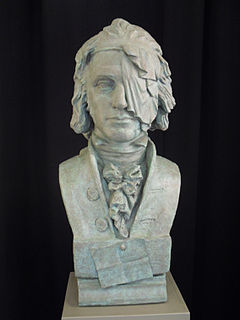 W
WThomas Muir, often known as Thomas Muir the Younger of Huntershill, was a Scottish political reformer and lawyer. Muir graduated from Edinburgh University and was admitted to the Faculty of Advocates in 1787, aged 22. Muir was a leader of the Society of the Friends of the People. He was the most important of the group of two Scotsmen and three Englishmen The Political Martyrs monument, Edinburgh. In 1793 after a show trial in Edinburgh for advocating democratic parliamentary reforms and votes for all men, they were sentenced to transportation to Botany Bay Australia for sedition.
 W
WJohn Murdoch of Ayr was Robert Burns's most significant teacher or tutor and he was a friend of the Burnes family. He was born in 1747 and first taught Gilbert and Robert Burns in Alloway when he was only aged eighteen. He remained in contact with the Burnes family for several years after leaving Ayrshire for London. Murdoch, William Burnes and Richard Brown were amongst the most significant influences on Burns life during his early years in Ayrshire.
 W
WPatrick Murray, 5th Lord Elibank (1703–1778) was a Scottish soldier, lawyer, author and economist.
 W
WJohn Playfair FRSE, FRS was a Church of Scotland minister, remembered as a scientist and mathematician, and a professor of natural philosophy at the University of Edinburgh. He is best known for his book Illustrations of the Huttonian Theory of the Earth (1802), which summarised the work of James Hutton. It was through this book that Hutton's principle of uniformitarianism, later taken up by Charles Lyell, first reached a wide audience. Playfair's textbook Elements of Geometry made a brief expression of Euclid's parallel postulate known now as Playfair's axiom.
 W
WSir William Pulteney, 5th Baronet, known as William Johnstone until 1767, was a Scottish advocate, landowner and politician who sat in the House of Commons between 1768 and 1805. He was reputedly the wealthiest man in Great Britain. He profited from slave plantations in North America, and invested in building developments in Great Britain, including the Pulteney Bridge and other buildings in Bath, buildings on the sea-front at Weymouth in Dorset, and roads in his native Scotland.
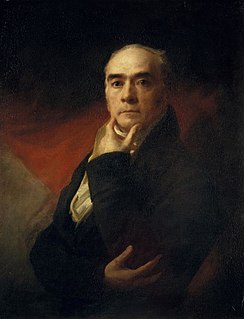 W
WSir Henry Raeburn was a British portrait painter, He served as Portrait Painter to King George IV in Scotland.
 W
WAllan Ramsay was a prominent Scottish portrait-painter.
 W
WAllan Ramsay was a Scottish poet, playwright, publisher, librarian, and impresario of early Enlightenment Edinburgh.
 W
WProf William Richardson FRSE was a Scottish classicist and literary scholar. In 1783 he was a joint founder of the Royal Society of Edinburgh.
 W
WJohn Richmond (1765–1846) was one of Robert Burns's closest friends and confidants. He was born in Sorn parish at Montgarswood, Ayrshire, Scotland. His father, Henry Richmond, was a merchant in Mauchline and owned Montgarswood Farm that lies near Sorn. This farm passed to James, John's brother, having once been farmed by William Fisher, Burns's Holy Willie.
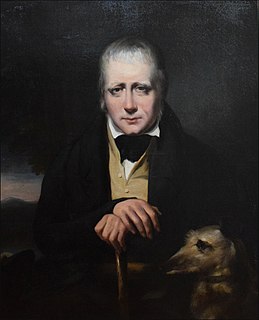 W
WSir Walter Scott, 1st Baronet was a Scottish historical novelist, poet, playwright, and historian. Many of his works remain classics of both English-language literature and of Scottish literature. Famous titles include The Lady of the Lake and the novels Waverley, Old Mortality, Rob Roy, The Heart of Mid-Lothian, The Bride of Lammermoor, and Ivanhoe.
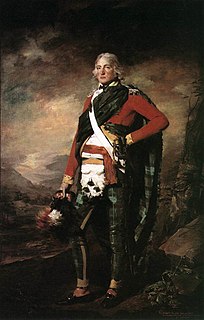 W
WSir John Sinclair of Ulbster, 1st Baronet, was a British politician, a writer on both finance and agriculture, and the first person to use the word statistics in the English language, in his vast, pioneering work, Statistical Account of Scotland, in 21 volumes.
 W
WJames Smith of Mauchline was one of Robert Burns's closest friends and confidants. He was born in 1765, son of a Mauchline merchant, Ayrshire, Scotland. In 1775, when he was only ten years, old his father, Robert Smith, a prosperous local merchant, was killed in a riding accident, falling from his horse whilst returning from Ayr. His mother, Jean Smith, remarried James Lamie.
 W
WTobias George Smollett was a Scottish poet and author. He was best known for his picaresque novels, such as The Adventures of Roderick Random (1748), The Adventures of Peregrine Pickle (1751) and The Expedition of Humphry Clinker (1771), which influenced later novelists, including Charles Dickens. His novels were amended liberally by printers; a definitive edition of each of his works was edited by Dr O. M. Brack Jr to correct such variations.
 W
WSir James Steuart, 3rd Baronet of Goodtrees and 7th Baronet of Coltness, also known as Sir James Steuart Denham and Sir James Denham Steuart, was a prominent Scottish Jacobite and author of "probably the first systematic treatise written in English about economics" and the first book in English with 'political economy' in the title. He assumed the surname of Denham late in life; he inherited his cousin's baronetcy of Coltness in 1773.
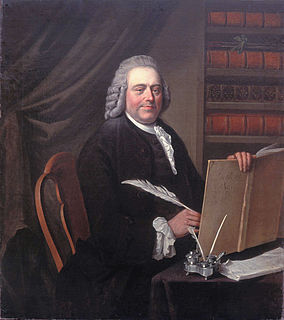 W
WPieter Teyler van der Hulst was a wealthy Dutch Mennonite merchant and banker, who died childless, leaving a legacy of two million florins to the pursuit of religion, arts and science in his hometown, that led to the formation of Teyler's Museum. This was not the value of his entire estate. He also founded Teylers Hofje in his name, and made important donations to individuals in the Mennonite community.
 W
W'The Holy Tulzie', 'The Twa Herds' or 'An Unco Mournfu' Tale was a poem written in 1784 by Robert Burns whilst living at Mossgiel, Mauchline, about a strong disagreement, not on doctrine, but on the parish boundaries, between two 'Auld Licht' ministers, John Russel and Alexander Moodie It was followed by "The Holy Fair", "The Ordination", "The Kirk's Alarm", "Holy Willie's Prayer", etc.
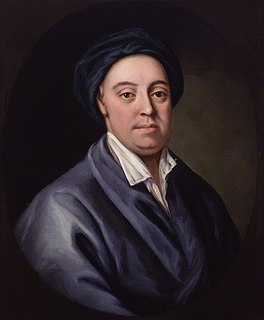 W
WJames Thomson was a Scottish poet and playwright, known for his poems The Seasons and The Castle of Indolence, and for the lyrics of "Rule, Britannia!".
 W
WVery Rev Prof John Walker DD MD FRSE (1731–1803) was a Scottish minister and natural historian. He was Regius Professor of Natural history at the University of Edinburgh from 1779 to 1803. He was joint founder of the Royal Society of Edinburgh in 1783 and Moderator of the General Assembly of the Church of Scotland in 1790.
 W
WJames Watt was a Scottish inventor, mechanical engineer, and chemist who improved on Thomas Newcomen's 1712 Newcomen steam engine with his Watt steam engine in 1776, which was fundamental to the changes brought by the Industrial Revolution in both his native Great Britain and the rest of the world.
 W
WJames Wilson was one of the Founding Fathers of the United States and a signatory of the United States Declaration of Independence and the United States Constitution. Wilson was elected twice to the Continental Congress, where he represented Pennsylvania, and was a major force in drafting the United States Constitution. A leading legal theorist, he was one of the six original justices appointed by George Washington to the Supreme Court of the United States, and in his capacity as first Professor of Law at University of Pennsylvania taught the first course on the new Constitution to President Washington and his cabinet in 1789 and 1790.
 W
WAlexander Wood was a Scottish surgeon, who was active in the convivial clubs which flourished in Enlightenment Edinburgh and was the founder of two of these. Owing to his lean, lanky physique he was better known to his contemporaries and to posterity as "Lang Sandy" Wood. His treatment of and friendship with the poet Robert Burns contributed to the local celebrity status which he attained.